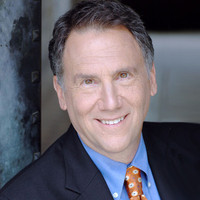It's the end of the workday.
Did you accomplish everything? Did you accomplish anything? Did you move the needle, or did the needle move you? Did you achieve quantifiable goals? Did you streamline? Problem-solve? Innovate? Motivate?
If the answers are no, no and not even close, do you have any reason to believe tomorrow's workday will end any better?
I didn't think so.
If you haven't figured out what the problem is, let me let you in on a little secret known only to ancient mystics and the writers of buzzy, self-help books. If you want your day to end right, it's what you do — or don't do — in the morning that makes all the difference. Or so I learned from "3 Simple Habits that Will Boost Your Productivity, According to Wellness Coach," a recent article by Sophie Caldwell in the "CNBC Make It" newsletter.
The specific wellness coach in the spotlight is Allison Tibbs, the CEO of Nourished Life Coaching & Consulting, whose number one habit is truly a wake-up call — "Fine tune your morning routine."
"Don't just dash out of bed or spend your morning scrolling," Tibbs says. Instead, "take some time to breathe and center yourself when you wake up."
This won't come easy to someone like yourself, who doesn't start breathing until they reach the office and find that your desk — and your job — is still there. As to what you should do while breathing in bed, the answer I hear most often is to meditate.
If you don't know how to meditate, you could trek to a guru's cave, high in the Himalayas, to get the answer. Alternatively, you could ask a very highly evolved entity called Google Gemini. That's how I learned meditation involves "directing attention to a specific object, such as the breath, a mantra, or an image, while letting go of distracting thoughts and emotions."
Since 99% of your work life is made up of distracting thoughts and emotions, find a guided meditation on the internet. Someone with a soft, caring voice, speaking over very emotional elevator music, will take over what's left of your brain, telling you what to think. You must do what they say. In other words, it's just like listening to your manager, except for the soft, caring voice.
While you are in the meditative state, distressing thoughts may come to you, like the sudden realization that you promised your team members you'd be in early to work on the big project. You are instructed to chase these negative thoughts from your consciousness, so that "the worries take up less and less space in your mind like clouds drifting away in the sky."
Or your job drifts away and you land, serene and centered, in the nirvana that is unemployment.
You can set a time limit for your morning meditation or continue in a mindless state until you get to work, at which point it is important to stop. When your manager sees you floating two feet over your desk, they may get suspicious.
Coach Tibbs' other two simple habits may not involve the morning hours, but they are definitely worth adding to your routine. Number two is "Protect your 'Power Hours.'" Determine when you are most productive and clear the deck so you won't be interrupted. You are also advised to clear your desk and "prep any necessities like water, snacks or office supplies."
This won't be easy. It's hard to imagine that you could accomplish anything significant without piles of Hot Buffalo Wing Pretzel Pieces and Little Debbie Nutty Buddies within easy reach. (Don't have Power Hours? Focus on your Power Minutes or your Power Seconds. You've got six or seven Power Seconds between 10:37 and 10:38 that are pure dynamite.)
Finally, habitualize yourself to number three, "Narrow your priorities." Don't start any work project until you determine whether it is a "do, delegate, or delete." You want to do the do's and don't do the don'ts. But since it is difficult to separate the do's from the don'ts, the best strategy is to delete all the do's and don'ts before you don't do a do or do do a don't you shouldn't have done. Like wasting time reading this column.
It's something to think about tomorrow when you do your morning meditation. Totally centered with a strong heartbeat, a deep breath and a clear mind, you'll ensure the day ends right by starting the day right.
You'll go back to sleep.
Bob Goldman was an advertising executive at a Fortune 500 company. He offers a virtual shoulder to cry on at [email protected]. To find out more about Bob Goldman and read features by other Creators Syndicate writers and cartoonists, visit the Creators Syndicate website at www.creators.com.
Photo credit: Kai Pilger at Unsplash






View Comments